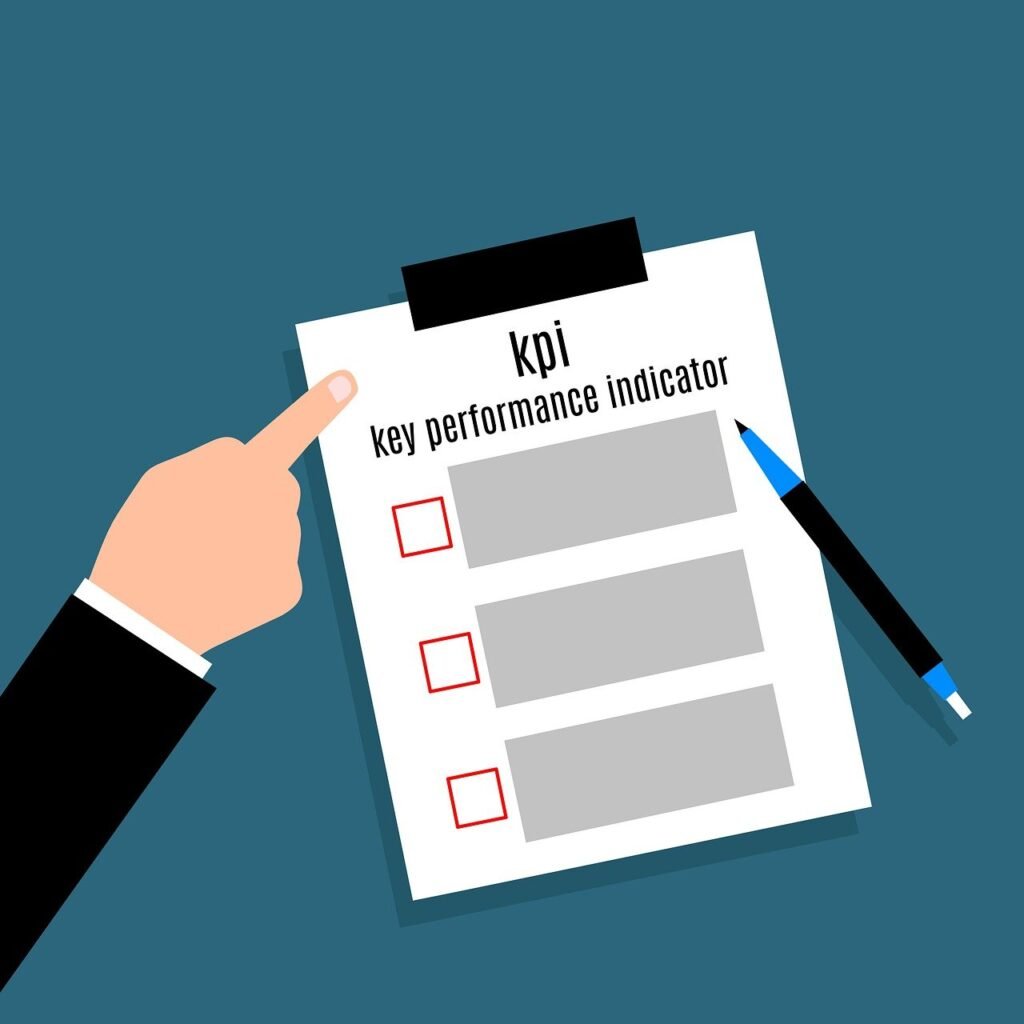This Article has been revised, edited and added to, by Poulomi Chakraborty.
- Understanding the Influencer Landscape
- The Power of Authenticity
- Know Your Influencers
- Staying Niche and Relevant
- The Evolution of Influencer Marketing
- The Diverse Spectrum of Influencers
- The Importance of Authenticity
- Building Trust Through Influencer Relationships
- Engaging Niche Audiences
- Strategic Content Alignment
- Leveraging Influencer Insights
- Measuring and Adapting to Trends
- Setting the Foundation for Success
- Defining Clear Objectives
- Crafting a Relatable Narrative
- Collaborative Strategy
- Establishing a Clear Vision and Mission
- Understanding Your Target Audience
- Crafting a Compelling Brand Story
- Building a Strategic Influencer Partnership Plan
- Setting Realistic and Measurable Goals
- Creating a Detailed Campaign Brief
- Investing in Relationship Building
- Utilizing Technology and Tools
- Ensuring Compliance and Transparency
- The Matchmaking Game
- Aligning Values and Vision
- Leveraging Data and Instinct
- Building Long-Term Relationships
- The Science of Influencer-Brand Alignment
- Deep Diving into Influencer Audiences
- Evaluating Authenticity and Engagement
- Crafting Personalized Outreach
- Negotiating Mutually Beneficial Terms
- Leveraging Micro-Influencers for Targeted Impact
- Building Long-Term Relationships
- Measuring Compatibility Through Pilot Campaigns
- Adapting and Evolving Partnerships
- Crafting the Message
- Authenticity in Messaging
- Flexibility and Creative Freedom
- Storytelling Over Selling
- Understanding Your Brand’s Core Message
- Tailoring the Message to the Influencer’s Voice
- Creating Emotional Connections
- Ensuring Clarity and Simplicity
- Incorporating Visual Storytelling
- Leveraging Influencer Insights
- Focusing on Benefits Over Features
- Creating a Call to Action
- Testing and Iterating the Message
- Ensuring Compliance and Transparency
- Integrating Across Channels
- Cross-Promotion Strategies
- Synchronizing with Other Marketing Efforts
- Leveraging User-Generated Content
- Creating a Unified Brand Experience
- Leveraging Each Platform’s Strengths
- Cross-Promotion for Maximum Reach
- Aligning Influencer and Brand Channels
- Engaging Audiences with Interactive Content
- Utilizing Analytics for Cross-Channel Insights
- Encouraging User-Generated Content
- Synchronizing with Offline Activities
- Leveraging Influencer Collaborations for Product Launches
- Maintaining Flexibility and Adaptability
- Measuring Impact and Success
- Setting KPIs
- Engagement Over Reach
- The Feedback Loop
- Defining Clear Objectives and KPIs
- Utilizing Advanced Analytics Tools
- Tracking Engagement Metrics
- Monitoring Conversion Rates
- Evaluating Reach and Impressions
- Analyzing Sentiment and Feedback
- Conducting A/B Testing
- Implementing Continuous Improvement
- Measuring Long-Term Impact
- Reporting and Communicating Results
- Conclusion
In a world where digital noise is louder than ever, standing out is about more than just being seen—it’s about being felt. That’s the heart of influencer marketing: connections that resonate. When a campaign hits that sweet spot, it’s like a well-played symphony where every note just fits. But how do we get there? This isn’t about luck; it’s about the art and science of crafting campaigns that resonate. Let’s dive in and explore the intricate dance of influencer marketing.
Understanding the Influencer Landscape

The first step in our journey is to understand the terrain. Influencer marketing isn’t just about numbers; it’s about stories, trust, and relevance.
The Power of Authenticity
In a space crowded with voices, authenticity isn’t just a buzzword; it’s the currency. Influencers who have nurtured their communities based on genuine interactions lead the pack. As a brand, aligning with such individuals means your message is more likely to be received as genuine and trustworthy.
Know Your Influencers
Influencers come in all shapes and sizes, with micro-influencers often packing a hefty punch. They boast higher engagement rates and their word feels like a recommendation from a friend. It’s about finding the right voice for your brand, not just the loudest one.
Staying Niche and Relevant
A scattergun approach rarely hits the target in influencer marketing. Stay niche and choose influencers whose values align with your brand. Their audience should inherently find value in your offering, making the campaign a natural fit rather than a forced endorsement.
The Evolution of Influencer Marketing
Influencer marketing has evolved significantly from its early days of celebrity endorsements. Today’s landscape is more nuanced, with a diverse range of influencers catering to niche markets. This evolution reflects a shift in consumer behavior, where audiences seek genuine connections and trustworthiness.
For startup founders, understanding this evolution is crucial for crafting campaigns that resonate. It’s not just about finding influencers with large followings but about identifying those who have a deep, authentic connection with their audience.
The Diverse Spectrum of Influencers
The influencer landscape is vast and varied, encompassing macro-influencers, micro-influencers, and even nano-influencers. Each category offers unique advantages. Macro-influencers, with their extensive reach, are ideal for brand awareness campaigns.
Micro-influencers, on the other hand, typically have a more engaged audience, making them perfect for driving specific actions or conversions. Nano-influencers, although having the smallest followings, often boast extremely high engagement rates and can create highly personalized connections.
For startups, strategically selecting the right type of influencer based on campaign goals and audience fit is vital.
The Importance of Authenticity
In an era where digital interactions often feel impersonal, authenticity is a differentiator. Influencers who have built their brand on genuine interactions and honest content are more likely to resonate with their followers.
For startups, partnering with such influencers can lend credibility to your brand. It’s essential to vet potential influencers carefully, looking beyond follower counts to assess the authenticity of their engagement and the sincerity of their content. Authentic influencers not only drive better engagement but also foster long-term brand loyalty.
Building Trust Through Influencer Relationships
The trust that influencers have cultivated with their audience is their most valuable asset. This trust is built over time through consistent, authentic interactions and content that resonates on a personal level.
For startups, leveraging this trust means ensuring that your brand message aligns with the influencer’s values and the expectations of their audience. It’s about creating a partnership where the influencer genuinely believes in and supports your brand, rather than simply delivering a paid endorsement. This alignment helps ensure that the influencer’s audience will view your brand with the same level of trust.
Engaging Niche Audiences
One of the most powerful aspects of influencer marketing is the ability to engage niche audiences. Influencers often serve specific communities with shared interests, values, or needs. For startups, tapping into these niche audiences can be incredibly effective.
By identifying influencers who operate within these communities, you can tailor your marketing efforts to speak directly to the interests and desires of a highly targeted group. This precision can lead to higher engagement rates and a more meaningful impact on your brand’s perception and growth.
Strategic Content Alignment
Understanding the type of content that resonates with an influencer’s audience is crucial for campaign success. Influencers create various forms of content, from long-form videos and blog posts to short-form social media updates and stories.
Each content type serves different purposes and engages the audience in unique ways. For startups, aligning your campaign content with the influencer’s strengths and their audience’s preferences is key.
Collaborate with influencers to develop content that feels natural and integrates seamlessly into their existing narrative, ensuring it resonates more deeply with their followers.
Leveraging Influencer Insights
Influencers have a unique understanding of their audience’s preferences and behaviors, which can be invaluable for shaping your marketing strategy. For startups, leveraging these insights means actively involving influencers in the campaign planning process.
Seek their input on content ideas, messaging, and even product development. This collaborative approach not only enhances the authenticity of the campaign but also taps into the influencer’s deep knowledge of their community, increasing the likelihood of the campaign’s success.
Measuring and Adapting to Trends
The influencer landscape is dynamic, with trends and audience preferences continually evolving. For startups, staying ahead of these changes is crucial. Regularly monitor industry trends, platform updates, and shifts in consumer behavior.
Influencers themselves can be a source of valuable insights into emerging trends. By maintaining a flexible strategy and being ready to adapt quickly, you can ensure your influencer marketing efforts remain relevant and effective. Continuous learning and adaptation are key to thriving in the fast-paced world of influencer marketing.
Understanding the influencer landscape involves recognizing the diverse types of influencers, valuing authenticity, building trust, engaging niche audiences, strategically aligning content, leveraging influencer insights, and staying adaptable to trends.
For startup founders, mastering these elements is essential for crafting influencer marketing campaigns that truly resonate and drive meaningful results.
Setting the Foundation for Success

With a grasp on the landscape, it’s time to lay down the bricks that will support a successful campaign.
Defining Clear Objectives
Begin with the end in mind. What do you want to achieve with your influencer marketing campaign? Brand awareness, conversions, or something else? Define clear, measurable objectives before you begin.
Crafting a Relatable Narrative
Every product has a story, and the best influencer campaigns tell it in a way that resonates. Whether it’s a problem being solved or a desire being fulfilled, your narrative should echo in the hearts and minds of the audience.
Collaborative Strategy
Crafting a campaign that resonates is a collaborative process. Work with influencers to co-create a strategy. They know their audience best and can offer invaluable insights into what will work.
Establishing a Clear Vision and Mission
Setting a solid foundation for influencer marketing campaigns begins with establishing a clear vision and mission for your brand. This vision should encapsulate your brand’s core values and long-term goals, providing a roadmap for all marketing efforts.
For startup founders, it’s crucial to communicate this vision to influencers so they can align their content with your brand’s overarching narrative. A well-defined vision not only guides the campaign but also ensures consistency and coherence in messaging across different influencers and platforms.
Understanding Your Target Audience
A deep understanding of your target audience is fundamental to the success of any influencer marketing campaign. This involves identifying not just the demographics but also the psychographics of your audience—their interests, values, pain points, and online behaviors.
For startups, leveraging data analytics tools to gather insights about your audience can be highly beneficial. These insights will inform every aspect of your campaign, from influencer selection to content creation, ensuring that your efforts resonate with the right people and drive meaningful engagement.
Crafting a Compelling Brand Story
A compelling brand story is at the heart of every successful influencer marketing campaign. This story should convey the unique value proposition of your brand, addressing the specific needs and aspirations of your target audience.
For startup founders, working with influencers to weave this story into their content can significantly enhance its impact. The narrative should be relatable and emotionally engaging, highlighting how your brand can make a positive difference in the lives of your customers. A strong brand story not only captures attention but also fosters a deeper connection with your audience.
Building a Strategic Influencer Partnership Plan
A strategic influencer partnership plan is essential for laying a strong foundation for your campaign. This plan should outline the criteria for selecting influencers, the scope of collaboration, and the key performance indicators (KPIs) for measuring success.
For startups, it’s important to develop a partnership framework that emphasizes mutual benefits and long-term relationships. This involves not just focusing on immediate campaign goals but also considering how the collaboration can evolve and grow over time.
A well-structured partnership plan ensures clarity and alignment between your brand and the influencers, leading to more cohesive and effective campaigns.
Setting Realistic and Measurable Goals
Defining realistic and measurable goals is crucial for tracking the success of your influencer marketing campaigns. These goals should be aligned with your overall business objectives and should be specific, measurable, achievable, relevant, and time-bound (SMART).
For startup founders, setting clear goals such as increasing brand awareness, driving website traffic, or boosting sales will help in evaluating the effectiveness of the campaign. Regularly reviewing and adjusting these goals based on performance metrics ensures that your campaigns remain on track and deliver the desired results.
Creating a Detailed Campaign Brief
A detailed campaign brief is a vital tool for ensuring that your influencer marketing campaign runs smoothly. This brief should include all necessary information about your brand, the campaign objectives, key messages, content guidelines, and deliverables.
For startups, providing influencers with a comprehensive brief helps in aligning their efforts with your brand’s expectations and standards. It also serves as a reference point throughout the campaign, facilitating clear communication and minimizing misunderstandings.
A well-prepared brief enables influencers to create content that accurately reflects your brand and resonates with their audience.
Investing in Relationship Building
Investing time and resources in building strong relationships with influencers can greatly enhance the success of your campaigns. This involves more than just transactional interactions; it requires genuine engagement and support.
For startup founders, taking the time to understand the influencer’s needs and providing them with the necessary resources and creative freedom can foster trust and loyalty.
Regular communication, prompt feedback, and recognition of their contributions help in nurturing these relationships. Strong, authentic relationships with influencers lead to more passionate and genuine endorsements, which resonate better with their audience.
Utilizing Technology and Tools
Leveraging technology and tools can streamline the process of setting up and managing influencer marketing campaigns. From influencer discovery platforms to analytics tools, technology can provide valuable insights and automate many aspects of campaign management.
For startups, investing in the right tools can save time and improve efficiency. These tools can help in identifying the right influencers, tracking campaign performance, and optimizing strategies based on real-time data. By utilizing technology effectively, startups can enhance the precision and impact of their influencer marketing efforts.
Ensuring Compliance and Transparency
Compliance and transparency are critical components of successful influencer marketing campaigns. This involves adhering to legal regulations and industry standards, such as disclosure requirements for sponsored content.
For startup founders, ensuring that all influencer partnerships are transparent and compliant helps in building trust with the audience. Clear guidelines on disclosure and honest communication about the nature of the partnership protect both your brand and the influencer from potential reputational risks.
Transparency in influencer marketing fosters credibility and enhances the overall effectiveness of your campaigns.
Setting a strong foundation for influencer marketing involves establishing a clear vision and mission, understanding your target audience, crafting a compelling brand story, building a strategic partnership plan, setting realistic goals, creating a detailed campaign brief, investing in relationship building, utilizing technology, and ensuring compliance and transparency.
For startup founders, mastering these foundational elements is essential for creating influencer marketing campaigns that not only resonate but also drive significant business growth.
The Matchmaking Game

Finding the perfect influencer for your campaign is like matchmaking; when it’s right, everyone knows.
Aligning Values and Vision
An influencer’s values and vision should mirror your brand’s ethos. Their content, audience, and style are all part of the package. Alignment in these areas is crucial for a campaign that resonates.
Leveraging Data and Instinct
While data should inform your decision, don’t discount instinct. Sometimes the magic of a campaign comes from a gut feeling that a certain influencer is just the right fit, even if they’re not the most obvious choice.
Building Long-Term Relationships
Instead of one-off posts, consider building long-term relationships with influencers. This cultivates trust and allows for a more authentic integration of your brand into their narrative over time.
The Science of Influencer-Brand Alignment
Finding the perfect influencer for your campaign is much like matchmaking; it requires a blend of data-driven analysis and intuitive understanding. The first step is to ensure alignment between the influencer’s persona and your brand’s identity.
This involves assessing the influencer’s content style, audience demographics, and engagement patterns. For startup founders, leveraging influencer marketing platforms that provide detailed analytics can be invaluable in identifying potential influencers who not only have a strong following but also share a natural synergy with your brand.
This alignment ensures that the partnership feels authentic and resonates more deeply with the audience.
Deep Diving into Influencer Audiences
Understanding an influencer’s audience is crucial to the success of your campaign. It’s not enough to know the number of followers; you need to understand who those followers are, what they value, and how they interact with content.
For startups, conducting a thorough analysis of an influencer’s audience demographics, interests, and engagement behaviors can provide insights into whether they are a good fit for your brand.
Tools that analyze followers’ activity and sentiment can help determine if the influencer’s audience aligns with your target market, ensuring that your message reaches the right people.
Evaluating Authenticity and Engagement
Authenticity and engagement are key indicators of an influencer’s potential impact. High engagement rates often suggest a strong, active relationship between the influencer and their audience.
For startup founders, it’s important to look beyond vanity metrics like follower counts and instead focus on the quality of interactions—comments, likes, shares, and conversations that indicate genuine interest.
Reviewing past collaborations and content can provide insights into how authentically the influencer engages with their followers and how they handle sponsored content. Authentic influencers can deliver your brand message in a way that feels genuine and trustworthy.
Crafting Personalized Outreach
Personalized outreach is essential in the influencer matchmaking process. Influencers receive numerous collaboration requests, so standing out requires a thoughtful approach. For startups, taking the time to craft personalized messages that acknowledge the influencer’s unique style and audience can make a significant difference.
Highlight specific aspects of their content that resonate with your brand and explain why you believe they are the perfect fit for your campaign. This personalized approach not only shows respect for their work but also sets the stage for a more enthusiastic and committed partnership.
Negotiating Mutually Beneficial Terms
Successful influencer matchmaking goes beyond selecting the right influencer; it also involves negotiating terms that are mutually beneficial. This includes clear agreements on deliverables, timelines, compensation, and expectations.
For startup founders, being transparent about your budget and what you hope to achieve can facilitate honest discussions. Consider creative compensation models such as performance-based incentives, revenue-sharing, or long-term partnerships that offer ongoing benefits.
Establishing fair and attractive terms can foster a positive relationship, ensuring that the influencer is motivated and invested in the campaign’s success.
Leveraging Micro-Influencers for Targeted Impact
While macro-influencers can provide extensive reach, micro-influencers often offer higher engagement rates and more targeted impact. These influencers typically have a more intimate relationship with their followers, leading to greater trust and influence.
For startups with specific niche markets, leveraging micro-influencers can be a strategic move. Identifying micro-influencers who are passionate about your industry or product category can lead to more authentic endorsements and a higher return on investment.
Their content tends to be highly relevant and trusted by their audience, which can significantly enhance your campaign’s effectiveness.
Building Long-Term Relationships
The most effective influencer marketing campaigns often stem from long-term relationships rather than one-off collaborations. Building ongoing partnerships with influencers allows them to become more familiar with your brand, leading to more authentic and integrated content.
For startup founders, fostering these long-term relationships involves regular communication, continuous support, and mutual growth opportunities. This could include exclusive product launches, joint content creation, and participation in brand events.
Long-term relationships not only provide continuity and deeper brand integration but also help build a loyal community around your brand.
Measuring Compatibility Through Pilot Campaigns
Before committing to a long-term partnership, consider running pilot campaigns to measure compatibility and effectiveness. These smaller, test campaigns can provide valuable insights into how well the influencer’s content resonates with your target audience and achieves your marketing objectives.
For startups, pilot campaigns offer a low-risk way to assess the potential of a more extensive collaboration. Analyze the results carefully, looking at both quantitative metrics like engagement and conversion rates and qualitative feedback from the influencer’s audience. Successful pilot campaigns can lay the groundwork for more significant, impactful collaborations.
Adapting and Evolving Partnerships
The influencer landscape is dynamic, and maintaining successful partnerships requires adaptability. Influencers evolve, as do their audiences and platforms. For startup founders, staying attuned to these changes and being willing to adapt your strategies is essential.
Regularly review campaign performance and gather feedback from influencers to understand what’s working and what’s not. Be open to evolving the partnership terms, content strategies, and goals to keep the collaboration fresh and effective.
This adaptability ensures that your influencer marketing efforts continue to resonate and deliver value over time.
The matchmaking game in influencer marketing involves a strategic blend of data analysis, personalized outreach, fair negotiations, and continuous adaptation.
By aligning with the right influencers, understanding their audience, fostering authentic relationships, and being flexible in your approach, startup founders can create powerful influencer marketing campaigns that truly resonate and drive meaningful business results.

Crafting the Message
Once you have the right influencers on board, the next crucial step is to craft the message that will carry your campaign.
Authenticity in Messaging
Your message should feel like a seamless addition to the influencer’s regular content. It has to be genuine and in their voice. Remember, their followers are experts on their content, and anything that doesn’t feel ‘right’ will stick out.
Flexibility and Creative Freedom
Giving influencers creative freedom can be scary, but it’s essential. Set guidelines, but allow them to adapt your message to their style. This keeps the content authentic and resonates more with their followers.
Storytelling Over Selling
People love stories, not sales pitches. Encourage influencers to share their genuine experiences with your brand. This storytelling approach is more engaging and relatable, which enhances the potential for your message to resonate.
Understanding Your Brand’s Core Message
Before diving into crafting the message for an influencer campaign, it is essential to have a deep understanding of your brand’s core message. This involves clearly defining your brand’s unique value proposition, mission, and values.
For startup founders, articulating this core message ensures that all marketing efforts are aligned and coherent. Your brand’s core message serves as the foundation upon which all influencer content is built, ensuring consistency and authenticity in every piece of content created.
Tailoring the Message to the Influencer’s Voice
One of the most critical aspects of crafting an effective message is tailoring it to fit the influencer’s unique voice and style. Influencers have built their followings based on their distinct personality and content style, so it’s important to adapt your message to their tone.
For startups, this means working closely with influencers to co-create content that seamlessly integrates your brand message into their natural storytelling. This approach not only maintains the authenticity of the influencer’s content but also enhances the relatability and impact of your message.
Creating Emotional Connections
Crafting a message that resonates often involves tapping into the emotional aspects of your brand’s story. Emotional connections can significantly enhance the effectiveness of your influencer marketing campaigns.
For startup founders, focusing on the emotional benefits of your product or service—such as how it improves lives, solves problems, or fulfills desires—can create a deeper connection with the audience.
Encourage influencers to share personal stories or experiences related to your brand, as these genuine narratives can evoke emotions and strengthen the bond between the audience and your brand.
Ensuring Clarity and Simplicity
In the digital age, where attention spans are short, clarity and simplicity are key to effective messaging. A clear and concise message is more likely to be understood and remembered by the audience.
For startups, this means distilling your core message into a simple, compelling statement that can be easily communicated by the influencer. Avoid jargon and overly complex language; instead, focus on straightforward, impactful messaging that highlights the primary benefits of your product or service. Clear and simple messages are more likely to resonate and drive action.
Incorporating Visual Storytelling
Visual elements play a crucial role in enhancing the appeal and effectiveness of your message. Incorporating visual storytelling can help convey your message more vividly and memorably.
For startup founders, collaborating with influencers to create visually engaging content—such as high-quality images, videos, and graphics—can significantly boost the impact of your campaigns. Visuals should align with your brand’s aesthetics and reinforce the core message, making it more attractive and engaging for the audience.
Leveraging Influencer Insights
Influencers have a deep understanding of their audience’s preferences and behaviors, making their insights invaluable for crafting effective messages. For startups, leveraging these insights involves actively involving influencers in the message creation process.
Seek their feedback on what types of messages resonate best with their followers and how to present your brand in a way that aligns with their content style. This collaborative approach ensures that the message is not only on-brand but also tailored to the audience’s expectations and interests.
Focusing on Benefits Over Features
When crafting your message, it’s important to focus on the benefits of your product or service rather than just its features. Benefits answer the question of “What’s in it for me?” and help the audience understand how your offering can improve their lives.
For startup founders, this means highlighting how your product solves a problem, meets a need, or enhances the user’s experience. Encourage influencers to demonstrate these benefits through real-life examples, testimonials, and practical applications, making the message more relevant and compelling.
Creating a Call to Action
A well-crafted message should always include a clear call to action (CTA). The CTA guides the audience on what to do next, whether it’s visiting your website, making a purchase, or engaging with your brand on social media. For startups, the CTA should be specific, actionable, and aligned with your campaign objectives.
Work with influencers to seamlessly integrate the CTA into their content, ensuring it feels natural and compelling. A strong CTA can significantly increase the effectiveness of your campaign by driving the desired actions from the audience.
Testing and Iterating the Message
Crafting the perfect message often requires testing and iteration. For startup founders, this means being open to experimenting with different messages, formats, and delivery methods to see what resonates best with the audience.
Use A/B testing and analytics to track the performance of different messages and gather insights on their effectiveness. Based on these insights, refine and optimize your message to enhance its impact. Continuous testing and iteration ensure that your message remains relevant and engaging in a dynamic digital landscape.
Ensuring Compliance and Transparency
In influencer marketing, compliance and transparency are crucial for maintaining trust and credibility. Ensure that your message complies with advertising regulations and guidelines, including clear disclosure of sponsored content.
For startups, working with influencers to transparently communicate the nature of the partnership helps build trust with the audience. Transparent messaging not only meets legal requirements but also enhances the authenticity of the campaign, fostering a positive relationship with the audience.
Crafting the message for an influencer marketing campaign involves understanding your brand’s core message, tailoring it to the influencer’s voice, creating emotional connections, ensuring clarity and simplicity, incorporating visual storytelling, leveraging influencer insights, focusing on benefits, creating a compelling call to action, testing and iterating, and ensuring compliance and transparency.
For startup founders, mastering these elements is essential for creating influencer campaigns that truly resonate and drive meaningful engagement and conversions.
Integrating Across Channels

An influencer campaign shouldn’t live in isolation. It should be part of a broader, multi-channel marketing strategy.
Cross-Promotion Strategies
Encourage influencers to share content across their platforms. This not only increases reach but also surrounds the audience with a consistent narrative, no matter where they engage with your brand.
Synchronizing with Other Marketing Efforts
Align influencer campaigns with your other marketing activities. This creates a cohesive marketing front, increases frequency of message exposure, and can lead to higher conversion rates.
Leveraging User-Generated Content
Influencer campaigns often inspire user-generated content. Showcase this content across your own channels to build community and authenticity, and to extend the campaign’s lifespan.
Creating a Unified Brand Experience
Integrating your influencer marketing efforts across multiple channels creates a unified brand experience for your audience. A consistent narrative and visual identity across various platforms reinforce your brand message and enhance recall.
For startup founders, this means ensuring that the core message, tone, and aesthetics of the campaign are maintained whether it appears on Instagram, YouTube, Twitter, or your website. Consistency builds trust and makes it easier for the audience to recognize and engage with your brand across different touchpoints.
Leveraging Each Platform’s Strengths
Different social media platforms offer unique features and strengths that can be leveraged to maximize the impact of your influencer marketing campaigns. For example, Instagram’s visual-centric nature is perfect for showcasing product aesthetics and lifestyle imagery, while YouTube’s long-form content is ideal for in-depth reviews and tutorials.
Twitter’s real-time interaction capabilities can drive immediate engagement and conversations. For startup founders, tailoring content to exploit these platform-specific strengths can significantly enhance audience engagement and campaign effectiveness.
Cross-Promotion for Maximum Reach
Cross-promotion involves using multiple platforms to promote the same campaign, increasing its reach and impact. When influencers share content across their various social media channels, it amplifies the message and engages different audience segments.
For startups, coordinating with influencers to create a cohesive cross-promotion strategy is key. This could involve synchronized posting schedules, unique platform-specific content, and interactive elements like polls or Q&A sessions. Cross-promotion ensures that your message reaches a broader audience and maximizes engagement.
Aligning Influencer and Brand Channels
Integrating influencer content with your own brand channels creates a more holistic marketing approach. Sharing influencer-generated content on your brand’s social media accounts, website, and email newsletters can extend the campaign’s reach and credibility.
For startup founders, this means curating and repurposing influencer content to fit seamlessly with your brand’s overall marketing strategy. Highlighting influencer collaborations on your platforms not only boosts the influencer’s visibility but also reinforces your brand’s authenticity and trustworthiness.
Engaging Audiences with Interactive Content
Interactive content is a powerful tool for cross-channel integration. Features like live streams, polls, challenges, and giveaways can engage audiences more deeply and encourage cross-platform participation.
For startups, collaborating with influencers to create interactive content can drive higher engagement and foster a sense of community. For example, hosting a live Q&A session on Instagram, followed by a giveaway on Twitter, and featuring the event highlights on YouTube can keep the audience engaged across multiple platforms.
Utilizing Analytics for Cross-Channel Insights
Analytics play a crucial role in understanding the effectiveness of your cross-channel influencer marketing campaigns. Monitoring key performance indicators (KPIs) such as engagement rates, reach, click-through rates, and conversions across different platforms provides valuable insights into what’s working and what’s not.
For startup founders, utilizing these insights to adjust and optimize the campaign in real-time is essential. Analyzing cross-channel data helps identify the most effective platforms, content types, and engagement strategies, allowing for more informed decision-making and better ROI.
Encouraging User-Generated Content
Encouraging user-generated content (UGC) can significantly amplify your cross-channel integration efforts. When followers create and share their own content related to your campaign, it extends your reach and builds a sense of community.
For startups, incentivizing UGC through challenges, hashtags, and rewards can drive more organic engagement. Featuring UGC on both influencer and brand channels not only enhances authenticity but also provides a steady stream of diverse content that keeps the campaign dynamic and engaging.
Synchronizing with Offline Activities
Integrating your influencer marketing campaigns with offline activities creates a seamless brand experience that transcends digital boundaries. Events, product launches, and in-store promotions can be amplified through influencer partnerships.
For startup founders, coordinating with influencers to promote and cover offline activities on their social media channels can drive both online and offline engagement. This synchronization ensures that your brand maintains a cohesive presence across all customer touchpoints, enhancing overall campaign impact.
Leveraging Influencer Collaborations for Product Launches
Product launches present a unique opportunity for cross-channel integration through influencer collaborations. Launching a new product simultaneously across various platforms, with influencers creating buzz and excitement, can significantly boost visibility and sales.
For startups, working closely with influencers to plan and execute a coordinated launch strategy is key. This could involve teaser campaigns, unboxing videos, live launch events, and exclusive influencer reviews.
A well-orchestrated product launch leverages the combined reach and influence of multiple channels to create a powerful market entry.
Maintaining Flexibility and Adaptability
The digital landscape is constantly evolving, and maintaining flexibility and adaptability in your cross-channel integration strategies is crucial. Trends, algorithms, and audience behaviors can change rapidly, requiring agile adjustments to your approach.
For startup founders, staying updated with platform developments and being ready to pivot strategies based on real-time feedback and analytics ensures sustained campaign relevance and effectiveness. This adaptability allows for continuous optimization and the ability to capitalize on new opportunities as they arise.
Integrating influencer marketing across channels involves creating a unified brand experience, leveraging each platform’s strengths, promoting cross-channel engagement, aligning influencer and brand content, engaging audiences with interactive content, utilizing analytics for insights, encouraging user-generated content, synchronizing with offline activities, leveraging collaborations for product launches, and maintaining flexibility.
For startup founders, mastering these strategies ensures a cohesive and impactful influencer marketing campaign that resonates deeply with the audience and drives meaningful business results.
Measuring Impact and Success

To ensure that your influencer campaigns truly resonate, you need to measure their impact.
Setting KPIs
Beyond likes and shares, set specific Key Performance Indicators (KPIs) aligned with your objectives. This might include engagement rate, click-through rate, or conversion rate.
Engagement Over Reach
While reach is important, engagement tells a more detailed story of resonance. High engagement rates often indicate that the content is meaningful to the audience.
The Feedback Loop
Use analytics and feedback to learn what works and what doesn’t. Engage with the influencer’s audience to gain insights, and don’t be afraid to iterate your approach based on what you learn.
Defining Clear Objectives and KPIs
Measuring the impact and success of your influencer marketing campaigns begins with defining clear objectives and key performance indicators (KPIs). These objectives should align with your overall business goals, whether it’s increasing brand awareness, driving sales, or growing your social media following.
For startup founders, it’s crucial to set specific, measurable, achievable, relevant, and time-bound (SMART) goals. These goals provide a framework for evaluating the effectiveness of your campaigns and help in making data-driven decisions.
Utilizing Advanced Analytics Tools
Leveraging advanced analytics tools is essential for gaining deep insights into the performance of your influencer marketing campaigns. Tools like Google Analytics, social media analytics platforms, and influencer marketing software can track a wide range of metrics, from engagement rates to conversion rates.
For startups, investing in these tools allows for comprehensive tracking and analysis of campaign performance. These insights can help identify which influencers and content types drive the most engagement and conversions, enabling more informed strategic decisions.
Tracking Engagement Metrics
Engagement metrics such as likes, comments, shares, and saves provide valuable insights into how well your content is resonating with the audience. High engagement rates typically indicate that the content is interesting and relevant to the audience.
For startup founders, it’s important to monitor these metrics across different platforms to understand how the audience is interacting with your content. Analyzing engagement trends can help refine your content strategy and improve future campaigns.
Monitoring Conversion Rates
Conversion rates are a critical measure of the success of your influencer marketing campaigns. These rates indicate how many people took a desired action after engaging with your content, such as making a purchase, signing up for a newsletter, or downloading an app.
For startups, tracking conversion rates helps in assessing the direct impact of influencer collaborations on business outcomes. By setting up conversion tracking and attribution models, you can accurately measure the ROI of your influencer marketing efforts and optimize for better results.
Evaluating Reach and Impressions
Reach and impressions metrics provide insights into how many people saw your content and how many times it was displayed. While high reach and impressions are important for brand awareness, it’s equally important to consider the quality of these views.
For startup founders, evaluating these metrics in conjunction with engagement and conversion data helps in understanding the effectiveness of your content distribution. Ensuring that your content reaches the right audience is key to maximizing the impact of your campaigns.
Analyzing Sentiment and Feedback
Sentiment analysis involves evaluating the tone and context of the audience’s reactions to your content. Positive sentiment indicates that your content is well-received, while negative sentiment can highlight areas for improvement.
For startups, analyzing sentiment and feedback from the audience provides valuable insights into their perceptions and attitudes towards your brand. This feedback can be gathered through comments, reviews, surveys, and social listening tools.
Addressing negative feedback and leveraging positive sentiment can enhance your brand’s reputation and strengthen customer relationships.
Conducting A/B Testing
A/B testing is a powerful method for optimizing your influencer marketing campaigns. By testing different variations of your content, you can determine which elements perform best.
For startup founders, conducting A/B tests on variables such as messaging, visuals, calls-to-action, and posting times can provide actionable insights into what drives the most engagement and conversions. Implementing the findings from A/B testing helps in refining your strategy and improving the effectiveness of future campaigns.
Implementing Continuous Improvement
Continuous improvement is essential for maintaining the effectiveness of your influencer marketing campaigns. Regularly reviewing performance data, identifying trends, and making iterative changes ensures that your campaigns remain relevant and impactful.
For startups, fostering a culture of continuous improvement involves staying updated with industry trends, learning from past campaigns, and being agile in adapting to new insights. This approach not only enhances the success of individual campaigns but also contributes to long-term growth and sustainability.
Measuring Long-Term Impact
While short-term metrics like engagement and conversions are important, it’s also crucial to measure the long-term impact of your influencer marketing efforts. This includes tracking brand awareness, customer loyalty, and lifetime value over time.
For startup founders, understanding the long-term impact involves analyzing trends and patterns beyond immediate campaign results. By integrating influencer marketing data with broader business metrics, you can gain a holistic view of how your efforts contribute to overall business growth and customer retention.
Reporting and Communicating Results
Effective measurement also involves clear reporting and communication of results to stakeholders. Comprehensive reports that include key metrics, insights, and recommendations provide a clear picture of campaign performance.
For startups, presenting these findings to team members, investors, and partners helps in demonstrating the value of influencer marketing and securing support for future initiatives. Transparent and detailed reporting fosters accountability and enables more strategic decision-making.
Measuring the impact and success of influencer marketing campaigns involves defining clear objectives and KPIs, utilizing advanced analytics tools, tracking engagement and conversion metrics, evaluating reach and impressions, analyzing sentiment and feedback, conducting A/B testing, implementing continuous improvement, measuring long-term impact, and effectively reporting results.
For startup founders, mastering these elements ensures a data-driven approach to influencer marketing that drives meaningful and sustainable business outcomes.
Conclusion
As we wrap up this deep dive into influencer marketing for the health and wellness sector, let’s take a moment to distill the essence of what makes a campaign not just successful, but truly resonant.
Influencer marketing is fundamentally about people. It’s about the connection that a fitness influencer has with their audience, and the trust that has been cultivated over countless posts, stories, and interactions. When a brand enters this space, it’s not just buying ad space; it’s being given a chance to enter a conversation. And like any good conversationalist will tell you, what matters most is authenticity.
The health and wellness sector is not just about looking good; it’s about well-being, growth, and personal journeys. Let your influencer marketing campaigns reflect that. Whether it’s through a meticulously crafted video, a candid Instagram story, or a tweet that sparks a movement, ensure that every touchpoint with your audience adds value to their day and authenticity to your brand.
Read Next:
- Affiliate Marketing Metrics that Matter: Tracking Conversions and ROI
- Affiliate Marketing for Digital Products: Strategies for Success
- How I Earned $10,000 in a Month with Affiliate Marketing
- The Science Behind Successful Affiliate Marketing Campaigns
- Affiliate Marketing Explained: A Comprehensive Overview for Beginners






















Comments are closed.